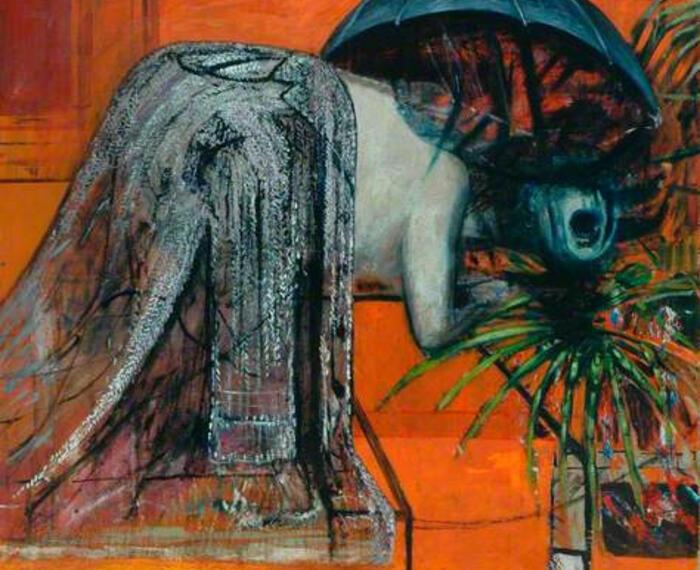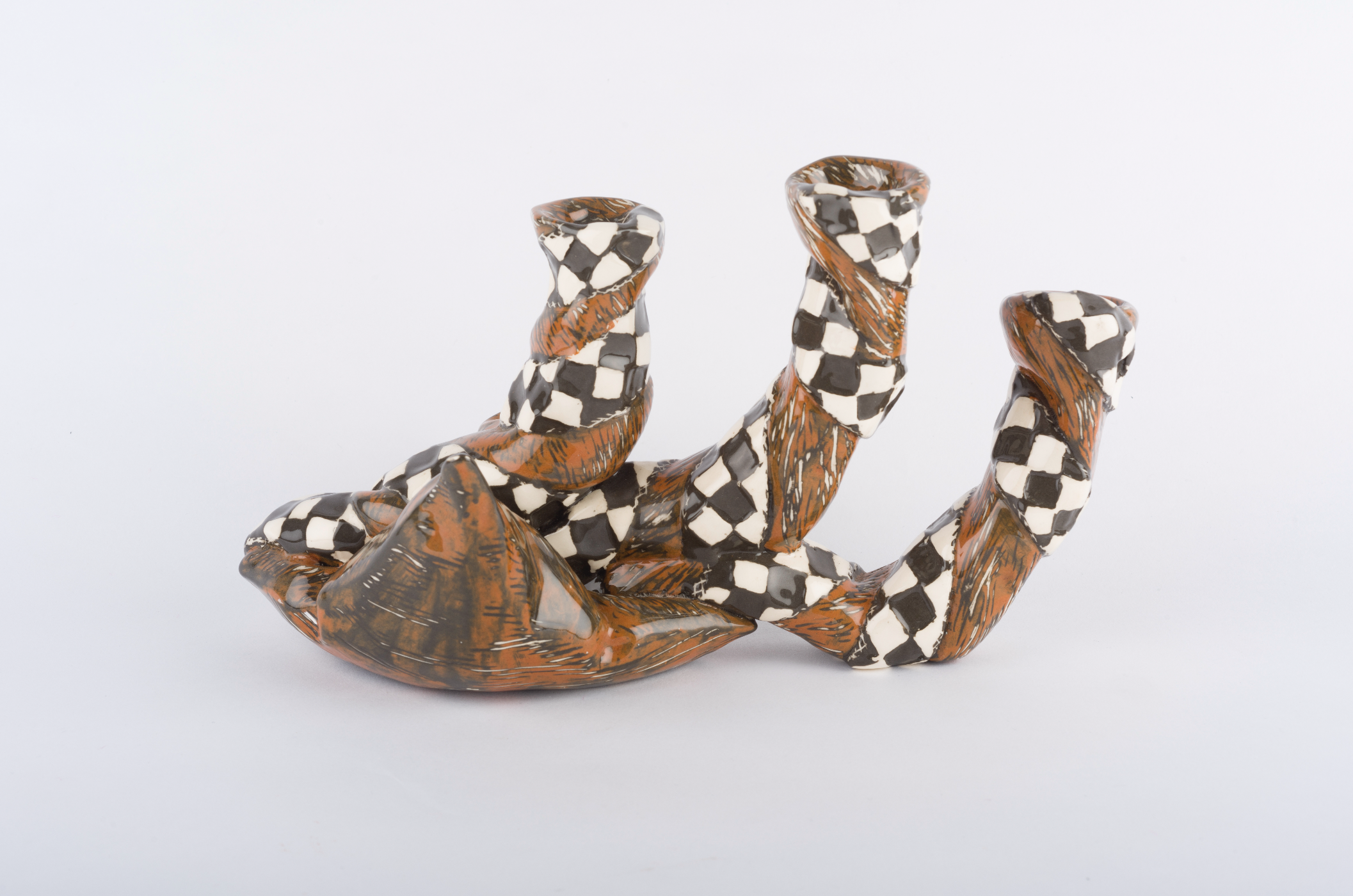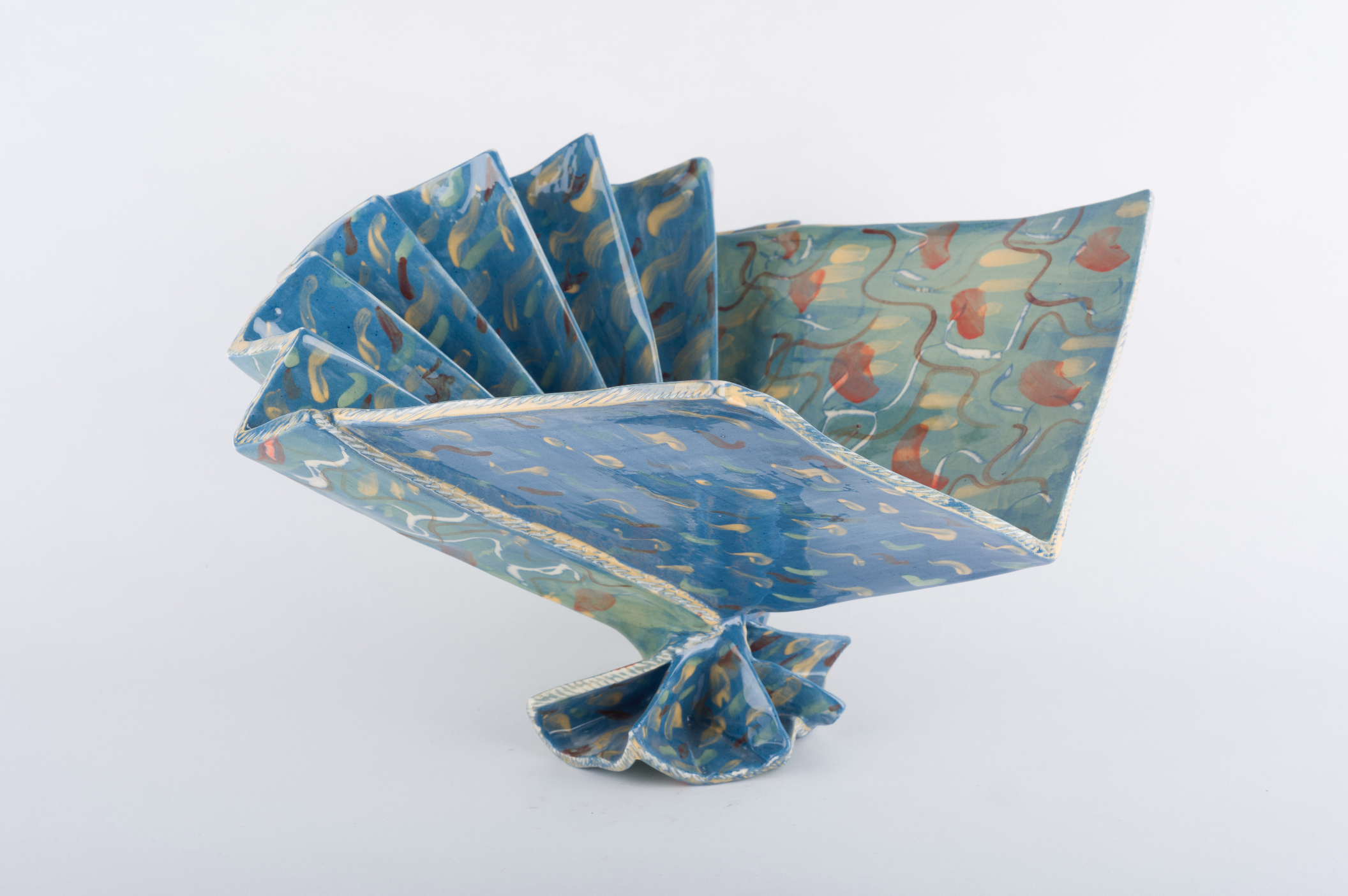

With great sadness we mark the passing of ceramic artist Carol McNicoll (1943 - 2025), who was a pivotal figure in the British ceramics scene from the late 1960s onwards.

Courtesy of the artist
As ceramics and the world of craft become more prominent in conversations surrounding fine art, it is important to honour the daring legacy of Carol McNicoll.
McNicoll was born in Birmingham on 24 December 1943, and brought up in Solihull, West Midlands. She attended a foundation course at Solihull College of Technology and then studied fine art at Leeds Polytechnic from 1967 to 1970. McNicoll was awarded a Princess of Wales Scholarship to attend Royal College of Art from 1970 to 1973, where she felt women were "marginalised" and "attention went to the men who were interested in industrial ceramics".

Courtesy of the artist
McNicoll studied in the School of Ceramics and Glass at the Royal College of Art, alongside many other trailblazing women ceramics artists such as Glenys Barton, Alison Britton, Jill Crowley, Elizabeth Fritsch, and Jacqui Poncelet. This cohort unsettled the established history of the vessel in ceramics, “playing wittily with industrial processes and with historic source material.” (Tanya Harrod for the Guardian 2025)
In Issue 200 of frieze, published in January 2019, Tanya Harrod wrote, “The art world has recently become interested in ceramics and in textiles, making discoveries, taking an interest in figures who have given their lives to one material – Anni Albers, Ewen Henderson, Sheila Hicks, Gillian Lowndes, Lucie Rie, Hannah Ryggen, Lenore Tawney. Why this should be remains mysterious. It cannot simply be a reaction to the ubiquity of the digital realm, this desire to rough-and-tumble with clay and hanks of yarn, to engage with glaze technology and rug-tufting guns. Nonetheless, art-world scouts do miss some good people. This is why I am writing about McNicoll, whose work as a potter now walks on the dark side. She introduced me to the borderland of craft, for which I count myself very lucky.”
The text was taken from the publication Carol McNicoll by Tanya Harrod and Roselee Goldberg, published by Lund Humphries.